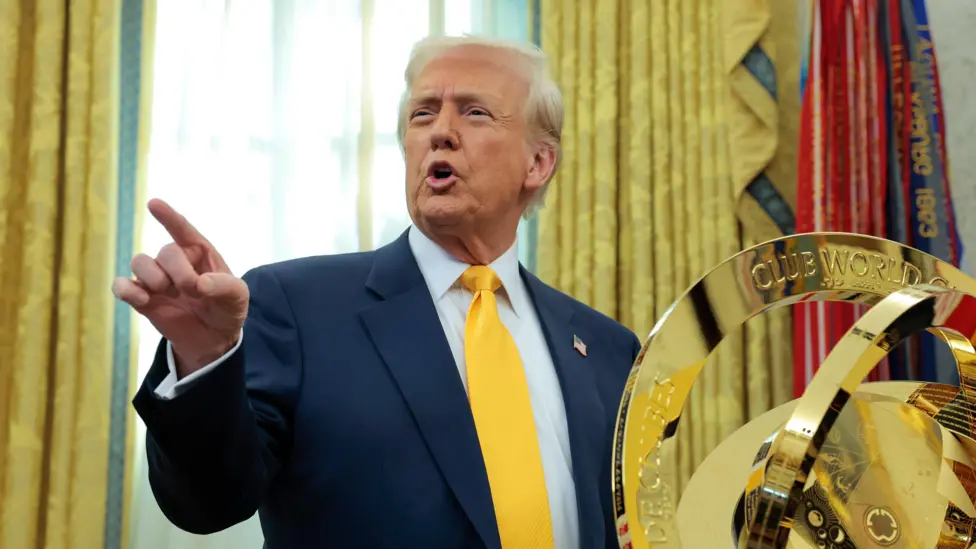Donald Trump’s new tariffs have sent shockwaves through global markets, but their effects could extend beyond economics and into the world of sports. With the U.S. set to host major events like the 2026 FIFA World Cup and the 2028 Los Angeles Olympics, businesses, sponsors, and athletes could feel the strain of increased trade barriers.
Sponsorship and Merchandise Challenges
Many major sponsors, including global brands like Nike, Adidas, and Hyundai, rely on international trade. Higher import costs could force these companies to rethink sponsorship deals, particularly for events in the U.S. Sports finance expert Kieran Maguire suggests that while costs may rise slightly, the impact on merchandise sales will likely be minimal.
The European Sponsorship Association is monitoring the situation, as increased trade restrictions could make it harder for non-U.S. businesses to capitalize on American sports markets.
Tensions at International Events
With the U.S. co-hosting the 2026 World Cup alongside Mexico and Canada—both targets of Trump’s tariffs—there are concerns about logistical challenges, including security coordination and cross-border fan travel. The political climate could also lead to increased hostility among fans, as seen when Canadian crowds booed the U.S. national anthem at NBA and NHL games.
At the upcoming Ryder Cup in the U.S., tensions with the EU over trade policies may fuel an even more intense rivalry between American and European golf fans.
Infrastructure and Economic Concerns
With rising steel and aluminum costs, the construction of sports venues and related infrastructure could become more expensive. Additionally, if tariffs contribute to inflation or a potential recession, consumers may have less disposable income for sports tickets, merchandise, and TV subscriptions, potentially affecting leagues like the Premier League, which has a lucrative U.S. broadcasting deal with NBC.
Uncertain Future for Global Sports in the U.S.
While Trump remains an avid sports fan and has promised a strong platform for the LA Olympics, the wider implications of his trade policies remain unclear. Nations typically use global sporting events to showcase their openness and economic strength, but Trump’s tariffs raise questions about how welcoming the U.S. will be to international business and fans in the years ahead.
With political tensions rising, the next few years will reveal whether Trump’s protectionist approach will hinder the global sports industry or simply be a bump in the road.



